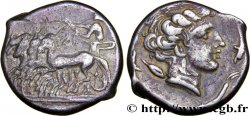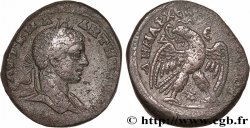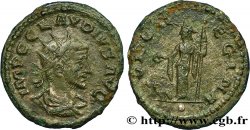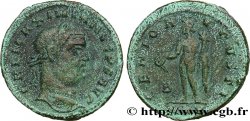brm_276975 - MAXENTIUS Follis ou nummus
180.00 €(Approx. 212.40$ | 156.60£)
Quantity
Add to your cart

Type : Follis ou nummus
Date: après le 20 avril
Date: 308
Mint name / Town : Ticinum
Metal : copper
Diameter : 26 mm
Orientation dies : 6 h.
Weight : 5,31 g.
Rarity : R2
Officine: 1re
Coments on the condition:
Exemplaire sur un flan large, ovale et irrégulier bien centré avec les grènetis visibles. Beau portrait consulaire. Usure importante, mais parfaitement lisible et identifiable. Patine marron
Catalogue references :
Obverse
Obverse legend : IMP MAXENTIVS P F AVG CONS.
Obverse description : Buste lauré consulaire de Maxence à gauche vu de trois quarts en avant, tenant le scipio de la main droite.
Obverse translation : “Imperator Maxentius Pius Felix Augustus Consul”, (L’empereur Maxence pieux heureux auguste consul pour la premième fois).
Reverse
Reverse legend : CONSERV - VRB SVAE/ -|-// PT.
Reverse description : Temple hexastyle avec fronton triangulaire orné et décoré ; à l'intérieur, statue de Rome casquée et drapée assise de face tournée à gauche, tenant un globe et une haste, derrière, un bouclier.
Reverse translation : "Conservatores Urbis Suæ", (Les protecteurs de leur ville).
Commentary
Poids très léger. Rubans de type 3 aux extrémités bouletées. Buste consulaire richement ornementé avec la toga picta et la toga palmata. Fronton vide. C’est la première fois que nous proposons ce type de follis avec la mention seule du premier consulat.
Very light weight. Type 3 ribbons with pelleted ends. Richly ornamented consular bust with the toga picta and the toga palmata. Empty fronton. This is the first time that we offer this type of follis with the sole mention of the first consulate
Very light weight. Type 3 ribbons with pelleted ends. Richly ornamented consular bust with the toga picta and the toga palmata. Empty fronton. This is the first time that we offer this type of follis with the sole mention of the first consulate







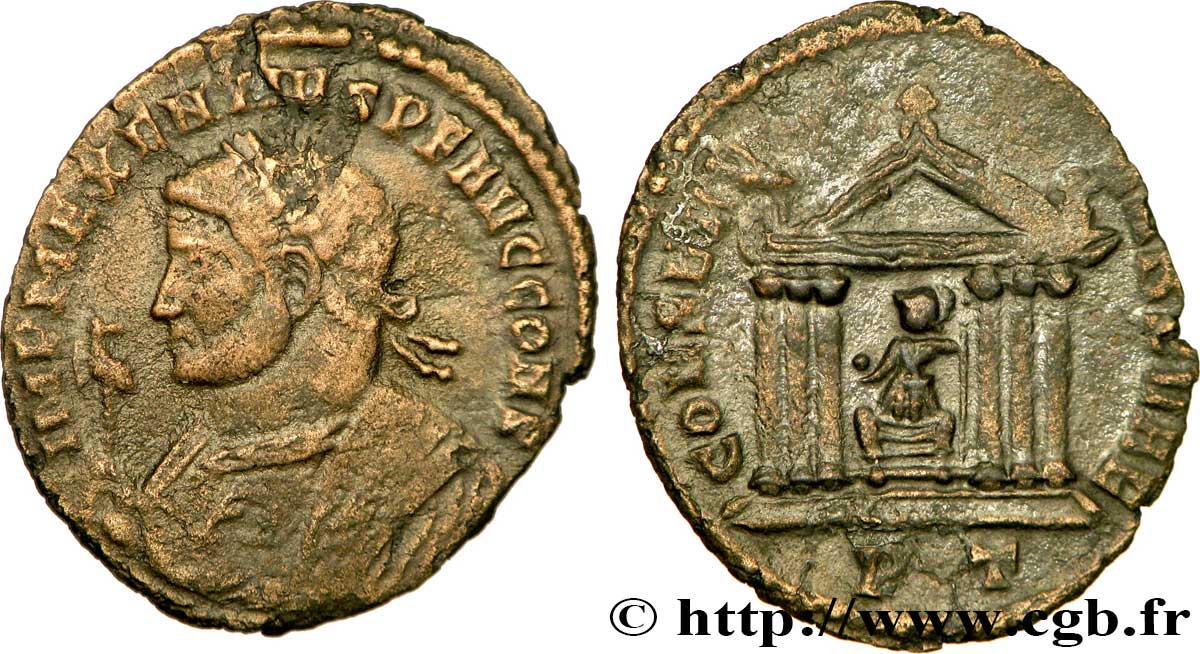
 Report a mistake
Report a mistake Print the page
Print the page Share my selection
Share my selection Ask a question
Ask a question Consign / sell
Consign / sell
 Full data
Full data





